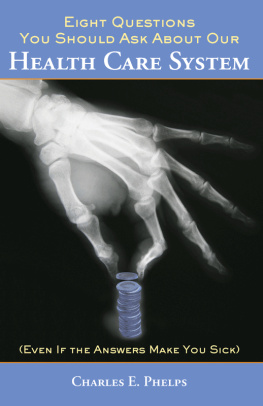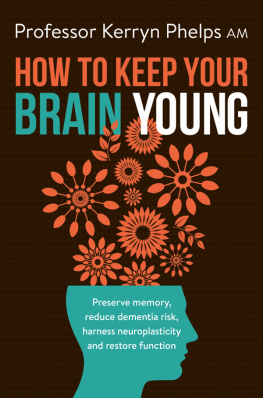About The Mystery Gut
As practitioners, Prof Phelps and Dr Lee know the problems caused by poor gut health and how an uneasy gut can make life miserable. Symptoms such as weight gain, diarrhoea and cramping are common, but few people receive a definitive disease label. Most of us are entirely unaware that by taking care of our gut we can improve our overall health.
In this meticulously researched and highly practical book, the doctors explain how we are on the threshold of a major revolution in the way we think about the gut and its relevance to our health. They explain common medical problems from IBS to various food intolerances and show you what's going on and what to do about it.
Featuring a comprehensive guide on the mysteries of microbiota, a plethora practices and treatments to restore your energy, and 30 recipes to revitalise and heal your gut produced with nutritionist and clinical dietitian Jaime Chambers this is an essential guide to fixing your gut and improving your wellbeing.

Contents
The Mystery Gut is dedicated to all of those people who suffer from a mysterious or undiagnosed health problem. They challenge us as clinicians to think more broadly and research more widely, and dare us to question the limits of convention.
Discovery consists not in seeking new lands but in seeing with new eyes.
Marcel Proust
Introduction
In our integrative medical practice, one of the most common problems we see is what we call the mystery gut.
There is a group of people who know they have a problem with their digestion or their gut function, but no number of standard investigations has been able to give them a label, a cause, or a way forward to ease their distress. Because they dont have a disease label, they are thrown into a grab bag called irritable bowel syndrome, and are destined to make the best of coping with their symptoms forever.
Then there is another group of people who are vaguely unwell but have no idea that their gut is causing the problem. Quite often, after patients have told one of us about their symptoms, we ask them about gut function and they say, My bowels are all over the place. Thats just me. Or, I get bloating and diarrhoea all the time. I didnt think to tell you about that. I didnt think it was relevant.
Human beings have known for many, many years that the gut is important for the digestion of food and the absorption of nutrients, but were now on the threshold of a major revolution in the way we think about the gut and its relevance to our health. Only now are we beginning to realise the marvellous complexity of the gut and its functions. The gut is a complicated environment of nerve connections and chemical reactions and interactions, with its own active bacterial population. The functioning of the gut not only governs the absorption of nutrients, but also modulates the immune system, influences brain function and can also affect other parts of the body, such as the skin, muscles and joints.
In The Mystery Gut, we will explain the current state of knowledge about how the gut works, and share with you Kerryns and Claudias decades of practical clinical experience as GPs, and Jaimes experience as a dietitian (and a foodie), in helping our patients overcome their mystery gut problems. Well step through the current state of understanding of the gut and its effect on human health... your health. Well explain common medical problems associated with gut issues, how to work out whats going on, and what to do about it. We decided to write this book after we saw firsthand the dramatic improvement in peoples lives when we addressed their mystery gut. This left us in no doubt that we needed to spread the message of the impact of gut health on wellbeing. And so we set out to make the inside information available, to empower you, the reader, to recognise and solve some of your own mystery gut problems, and perhaps find the answer to your own puzzling health issues.
Professor Kerryn Phelps AM
Dr Claudia Lee
Jaime Rose Chambers
PART 1
HOW THE GUT WORKS
The gut is a mysterious thing and can create many mysterious problems, but were beginning to understand the intricate forces at play in maintaining good gut function.
1
The Mystery Gut
As medical students we had the very useful but confronting experience of dissecting cadavers (people who had willed their bodies to science) and this greatly enhanced our knowledge of anatomy. The most memorable part of the session on the gut was being able to stretch the long hollow small intestine across the room to make the point that it was about seven metres (25 feet) long but had in life fitted neatly into the abdominal cavity.
Once we finished medical school and became hospital residents working with patients at a clinical level, the gut was still a mystery. After a gastrointestinal surgical operation, only time would tell when a particular patients gut would decide to start functioning again, so that any sign (usually gurgling or gas) would be cause for celebration. In the meantime, patients waited patiently in hospital with a tube inserted through their nose into their stomach to allow their gut to rest. Antibiotics and other medications were administered into patients bodies to prevent or solve one medical problem or another, with scant regard for the effect they might have on the long-term health of the gut.
Once we started working in general practice, the mystery continued. For us GPs, with perhaps one or two pharmaceutical remedies for irritable bowel syndrome (IBS) at our disposal to help our patients, it seemed we had little to offer except to exclude any red-flag symptoms such as bleeding or unexplained weight loss that would suggest the need for referral to a specialist. But then we started to take more notice of the gut. And when we did start investigating and treating more specific gut symptoms, we started seeing results not only in terms of obvious bowel-related problems such as gas, constipation, reflux, bloating and abdominal pain, but we also noticed improvements in other seemingly unrelated problems, such as acne, skin rashes, joint pain, fatigue and mood problems.
How the gut works
Every great story has an interesting plot and begins by introducing the main characters. Heres the story of the gut.
The storyline
The gut is the food tester, taster, processor and extractor, turning food into fuel to make the body run efficiently, which is why we want to give it the best food we possibly can. The gut is also a compactor for food waste storage and the eliminator of unwanted food, fibre and toxins.
The gut doesnt exist in isolation from the rest of the body, though. The gut wall contains nerves and chemical messengers that enable it to communicate with every other part of the body, every second of the day. Its an active participant in the bodys immune system, and theres constant, active two-way communication between it and the brain.

The digestive system
The brain
Digestion starts in the brain. The brain responds to food even before it has entered the mouth and touched the tastebuds in a process medical circles call the cephalic phase of the digestive response. It commences when we even think about, look at, smell or touch food. Most people can relate to that mouthwatering sensation when you smell your favourite food. Its more than just an expression. It describes the triggering of the physical digestive process, the production of saliva and the stomachs digestive secretions.
Next page









